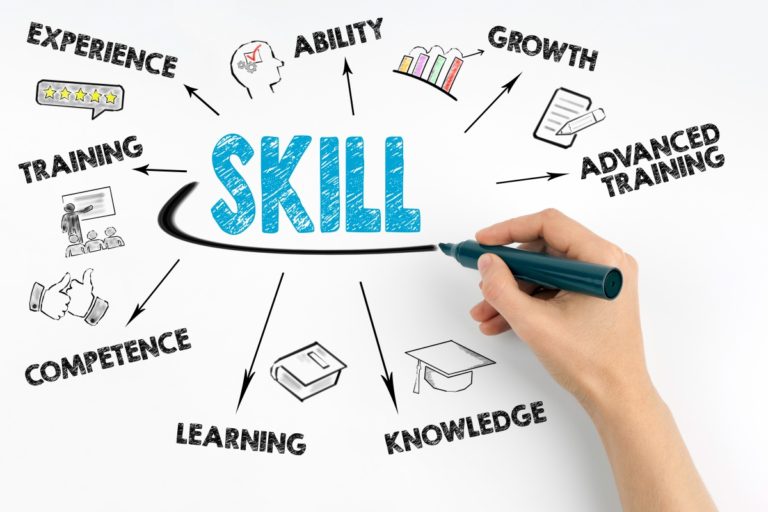
AI is becoming a staple across multiple sectors such as healthcare, finance, retail, and notably in education. In these fields, AI is revolutionizing traditional methods, enhancing efficiency, and personalizing user experiences. In education, specifically, an increasing number of students are turning to AI tools to optimize their study routines and manage their academic tasks more effectively. This article will delve into the numerous advantages that AI offers in the educational sphere, from personalized learning to streamlined administrative processes. Additionally, we'll explore the ethical considerations that come with integrating such advanced technologies into everyday learning, ensuring a balanced view of AI's role in shaping the future of education.

Personalized Learning
The core strength of AI in education lies in its remarkable ability to personalize the learning experience. Unlike the conventional one-size-fits-all approaches that have dominated traditional classrooms, AI-powered platforms such as StudyGPT delve deep into the nuances of individual learning patterns and preferences. This adaptive technology analyzes data on how students interact with material, identify their strong and weak points, and even estimate their response times. By doing so, it tailors content to align perfectly with each learner's pace and preferred style of absorbing information.
This high degree of customization ensures that students are neither overwhelmed by the pace nor bored by the lack of challenge. Each student's learning curve is optimized for maximum efficacy and enjoyment, allowing them to advance through subjects at a comfortable pace that suits their personal learning journey. This is particularly crucial when tackling complex subjects where concepts build on one another. By breaking down complex topics into manageable, personalized segments, AI tools ensure comprehension at every step before moving on to more challenging material.
Moreover, these AI systems extend their personalization beyond just pacing and style. They also adapt the types of content presented and the methods of teaching. For instance, a student who thrives with visual learning might receive more infographics and video content, while a verbal learner might get more readings and podcasts. Furthermore, StudyGPT provides continuous assessments tailored to the student’s evolving understanding, offering real-time quizzes and feedback that help reinforce learning and identify areas that require more focus.
These personalized assessments are also helpful in boosting a student's confidence and competence. By receiving immediate feedback, students understand exactly where they stand and what they need to improve. This feedback loop not only accelerates the learning process but also builds a student’s confidence as they see tangible progress in their understanding and mastery of the material.

Accessibility Beyond the Classroom
AI makes education more accessible than ever before. Students can access learning materials anytime and from anywhere, removing barriers associated with usual education settings.
StudyGPT embodies this shift by being accessible as a Chrome extension, allowing students to engage with their studies from any location, be it during a commute, at a café, or at home, ensuring that learning opportunities are always just a click away. This ease of access is crucial for students who might have challenging schedules, limited access to physical educational institutions, or those who simply thrive in less traditional learning environments.
Moreover, the availability of StudyGPT means that students are no longer bound by the operating hours of physical libraries or the availability of human tutors. They can explore a concept or clarify doubts instantly without waiting for the next school day or tutoring session. This instant access not only makes learning more flexible but also more responsive to the needs of the student, fostering a more supportive and efficient educational experience.
Additionally, the presence of AI can help level the educational playing field. Students from remote or underserved regions can access the same quality of resources and educational support as those in more affluent urban areas. This democratization of education is vital for reducing educational inequalities and promoting fairness in learning opportunities.
By making learning opportunities available and more adaptable to individual needs, AI is not only enhancing educational accessibility but also transforming how and when students can learn, paving the way for a more inclusive and flexible educational landscape.
Streamlining Administrative Tasks and Research
Besides just helping with learning, AI also makes many extra academic tasks much easier. For students, StudyGPT simplifies the research process by quickly sourcing and summarizing relevant information, significantly cutting down the time they spend gathering data. This allows students to to delve deeper into their subjects without getting bogged down by the often-time-consuming process of finding and organizing information.
This efficiency is achieved through AI's ability to access and analyze vast databases and scholarly resources within seconds, pinpointing precise information that aligns with students' research needs. Instead of sifting through multiple sources manually, students can rely on AI to aggregate and distill the essential data, presented in a concise and understandable format. This not only speeds up the research phase but also ensures that the information is accurate and up to date.
Furthermore, by automating the more tedious aspects of research, AI frees up time for students to engage more thoroughly in critical thinking and analysis. They can spend more time evaluating the information, synthesizing different perspectives, and developing their arguments or solutions. This shift from mechanical tasks to higher-level thinking enhances the overall quality of academic work and fosters a deeper understanding of the subject matter.
Moreover, AI’s assistance in the research process is invaluable for fostering independent study habits and self-directed learning. Students become more adept at exploring topics of interest, leading to a more personalized and engaged learning experience. This encourages a proactive approach to education, where students feel empowered to explore and expand their knowledge beyond the classroom, driven by their curiosity and facilitated by AI's capabilities.
Interactive Learning and Skill Development
Educational tools powered by AI are built to dynamically interact with students. These platforms can immediately assess a student's response to questions, adjust difficulty levels in real time, and provide customized problem-solving scenarios. Such responsiveness keeps the learning environment engaging and challenging, specifically addressing the evolving needs of each student.
By offering customized problem-solving scenarios, AI educational tools help students apply theoretical knowledge in practical contexts. For example, an AI tool in mathematics might adaptively generate problems that increase in complexity as a student's understanding deepens. Similarly, in science education, AI can simulate interactive experiments where students can predict outcomes and immediately see the consequences of their hypotheses, promoting active learning and critical thinking.
Furthermore, this responsive approach allows for personalized educational pathways. If a student struggles with a concept, the AI can offer additional resources such as explanatory videos, extra practice questions, or simplified step-by-step guides to ensure comprehension. For advanced learners, the tool might introduce more complex material to keep them stimulated and engaged.
The continuous interaction between students and AI educational tools also enables a cyclic learning process. As students engage with the material, AI collects data on their performance, which is then used to refine teaching strategies and content delivery. This iterative process ensures that the learning environment is constantly optimized to meet students' personal learning styles and pace.
Additionally, these interactive experiences are crucial for cultivating vital skills such as problem-solving, critical thinking, and creativity. Engaging students with hands-on tasks, allowing them to experiment, and providing immediate feedback encourages a learning culture that values perseverance, adaptability, and innovative thinking.

Ethical Considerations
While AI in education presents a wealth of advantages, it also poses several significant challenges that need careful consideration and proactive management. These include ensuring privacy, addressing potential biases in AI algorithms, providing equitable access to all learners, and mitigating the impact on essential human interactions.
Privacy Concerns: As AI systems process vast amounts of personal data to deliver personalized learning experiences, safeguarding student privacy becomes paramount. There is a critical need for robust data protection measures to prevent unauthorized access and misuse of student information. Implementing stringent data security protocols and ensuring compliance with privacy laws are essential steps towards maintaining the trust and safety of users.
Algorithmic Bias: AI systems are only as unbiased as the data used to train them. If the underlying data contains biases, the AI's outputs will likely perpetuate these biases, leading to unfair or prejudiced decisions affecting students. To combat this, developers must employ diverse datasets and continuously audit and update AI algorithms to identify and correct biases. This ensures that AI-driven decisions are fair and objective, reflecting an accurate and equitable approach to student learning and assessment.
Equitable Access: Ensuring that AI educational tools are accessible to all students, regardless of their socio-economic background, is crucial for avoiding a digital divide. This involves not only making AI tools affordable but also ensuring they are user-friendly for students with disabilities and available in multiple languages to cater to diverse student populations. Bridging the digital divide also means improving infrastructure in underprivileged areas to enable access to these advanced tools.
Impact on Human Interaction: While AI can significantly enhance the learning experience, there is a concern that overreliance on these tools could diminish the human elements that are vital in education, such as teacher-student relationships and peer interaction. These human interactions are critical for developing interpersonal and critical thinking skills. Balancing AI use with human interaction can help preserve the benefits of traditional educational methods while leveraging the advantages of technology.
StudyGPT's Approach: Recognizing these challenges, StudyGPT is actively working to address them by prioritizing ethical practices and transparency in its operations. The platform continuously improves its algorithms to ensure they are inclusive and fair, conducting regular audits to check for and mitigate any biases. StudyGPT also emphasizes protecting user data and ensuring its AI tools are accessible and beneficial to a broad audience. By maintaining an open dialogue about its methods and goals, StudyGPT strives to foster trust and accountability, positioning itself as a leader in ethical AI educational technology.
Conclusion
The integration of AI into education offers a more personalized, accessible, and efficient learning experience, promising significant transformations in how students worldwide engage with knowledge. However, the success of AI technologies in education hinges on careful ethical considerations and a balanced interaction between human guidance and automated tools.
Ethical Considerations: It's essential that AI tools are developed and deployed with a strong emphasis on fairness and transparency to build trust and ensure they benefit all students equally.
Balancing Human and AI Interaction: The irreplaceable value of human interactions in educational settings must be preserved. Teachers play a crucial role in developing interpersonal and critical thinking skills in students, which AI should enhance, not replace.
Future Preparedness: As AI continues to evolve, so should our approaches to integrating it into educational systems. This involves continuous updates and feedback to refine AI tools, ensuring they meet the dynamic needs of students and educators.
In brief, while AI holds the potential to make education more inclusive and adaptive, achieving this requires a proactive approach to its challenges. By maintaining a balance between technological advancements and human touch, AI can significantly enhance educational outcomes, preparing students for a future where they not only use technology but also shape its impact on society.